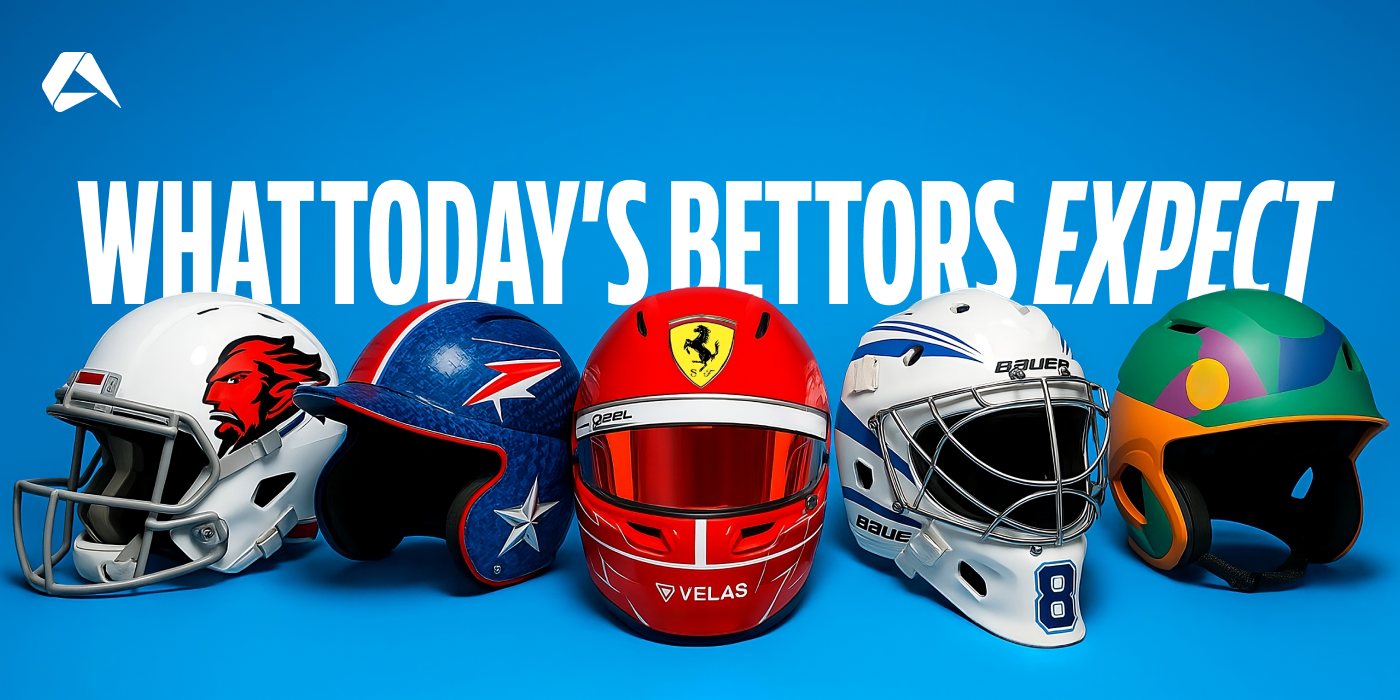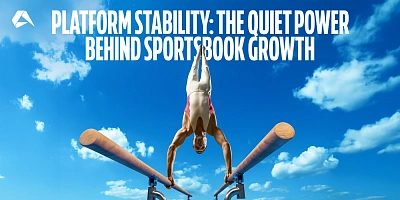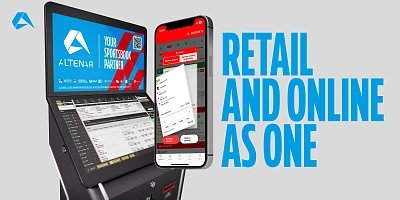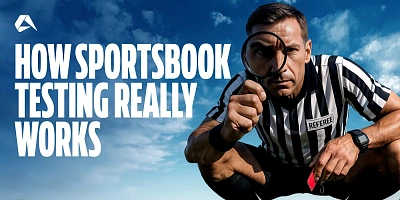Overview What Today’s Bettors Really Want from a Sportsbook
The contemporary sportsbook industry is undergoing a fundamental transformation, driven by the demands of modern bettors, particularly digital natives like Gen Z and younger millennials. These players seek more than competitive odds; they require an instant, smooth, and highly personalised mobile experience that mirrors social feeds.
Speed is the new foundation of trust, with real-time data crucial for engagement and in-play betting. Operators must build platforms designed for volatility, ensuring instant availability and transparent settlements.
Effective sportsbooks leverage data-driven personalisation to offer tailored markets and relevant notifications, enhancing engagement and long-term loyalty. Unlike casino players, sportsbook bettors focus on analysis and control, viewing wagering as an analytical exercise.
While the mindsets differ, sportsbooks can selectively adapt casino retention tactics, like tiered rewards and community features, by framing them through empowerment and transparency. Ultimately, confidence, clarity, and control are the new currencies determining sustained success in 2025.
Read the blog below for more details and discover how to meet the expectations of modern bettors effectively.
How modern players are reshaping the sportsbook experience and the insights from casino player preferences that can sharpen your edge.
Sports betting in 2025 isn’t just bigger. It’s different. The modern bettor is no longer satisfied with a static list of odds or a weekend flutter. They expect instant markets, easy mobile experiences, and a website that feels like it understands them personally. For operators, this is more than a cosmetic overhaul. On balance, it’s more of a fundamental change that’s reshaping how sportsbooks are built, run, and monetised.
What’s driving it is the simple truth that players have choices. If your platform doesn’t offer the speed, clarity, and trust that bettors demand, they’ll move on to one that does. And while sportsbook users may seem worlds apart from their casino counterparts, looking at the differences (and occasional overlaps) between these two mindsets can provide a clearer view of how to keep bettors engaged in an increasingly competitive market.
This article examines what today’s sports bettors truly desire and how platforms that cater to these expectations can achieve sustainable growth. Along the way, we’ll draw on lessons from the casino vertical to show where the smartest sportsbooks are borrowing ideas and where the lines must remain firmly drawn.
The Sportsbook Player of 2025
Before we discuss platform technology, we need to talk about people. If you still picture the typical bettor as the same weekend punter from a decade ago, think again. A new generation has arrived, and they’re rewriting the rules of engagement. Ultimately, that means that the habits, expectations, and decision-making patterns of today’s sportsbook users look very different.
Who Is The Bettor of Today?
Not long ago, the typical bettor was a Gen X or older millennial placing wagers on desktop, often loyal to a single operator and patient with slower platforms. In 2025, that profile has altered. Gen Z and younger millennials now make up a significant share of active bettors, and their habits are prompting sportsbooks to reassess how they manage engagement.
Let’s be clear. These new bettors are digital natives. They’ve grown up swiping, streaming, and expecting immediate results. When they open a sportsbook app, they’re not prepared to wait for odds to refresh or for clunky pages to load. They expect the same effortless flow they get from TikTok or Instagram, which is instant, smooth, and tailored to their needs and preferences.
What Do They Value Most?
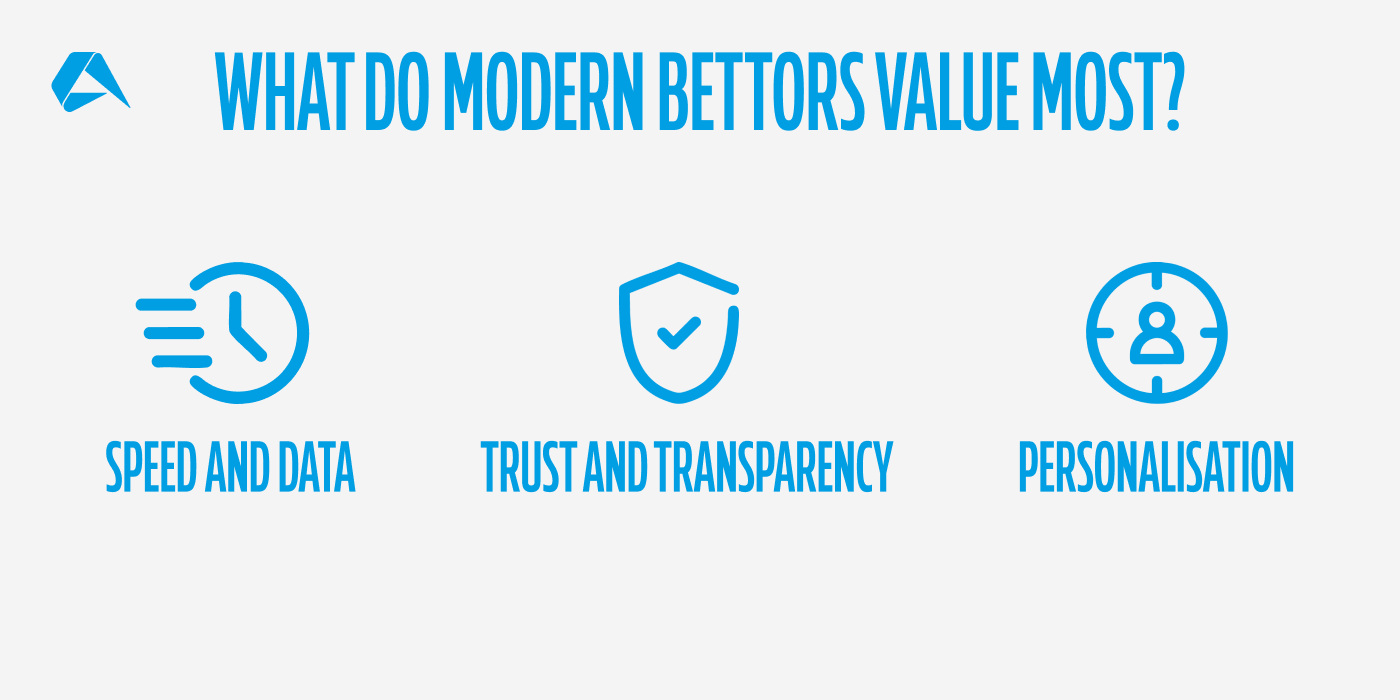
Speed and Data
Ask any operator where today’s sportsbook battles are being fought, and you’ll often get a straight answer. It’s at the speed of the data feed. Bettors now expect odds and updates to arrive the second the action unfolds, not a moment later. Suffice to say, in-play betting has become the centrepiece of engagement, with micro-markets allowing wagers on the smallest moments of an event.
Consequently, when updates lag, attention invariably drifts. In 2025, speed is more than just a feature to advertise. It is the very foundation of trust.
Personalisation
If speed keeps players engaged, personalisation is what makes them stay and wager more, more often. Modern bettors are no longer content with scrolling through endless lists of odds. Typically, they want a sportsbook that recognises their habits and brings to their attention what matters most. That might mean prioritising their favourite leagues, a focus on team-specific markets, or tailoring offers around the players they follow.
In this context, push notifications still have their place, but only when they feel well-timed and relevant. Anything resembling spam is invariably ignored and risks breaking the relationship entirely.
Trust and Transparency
Few things influence loyalty faster than the sense that a platform can be trusted. Today’s punters arrive with keener instincts, shaped by years of hearing about scams, data leaks, and restrictions in the small print that players only notice when it’s too late.
Modern bettors seek clarity in how odds are displayed, confidence that bets will be settled instantly, and reassurance that their money and data are secure. To this extent, even minor infringements can trigger doubt, and in a marketplace this competitive, doubt is all it takes to send a player elsewhere.
How Sports Bettors Compare with Casino Players?
Where casino players often look for immersive experiences and entertainment, sportsbook bettors focus on analysis and immediacy. In contrast, this means that they don’t need spinning wheels or elaborate visuals, but rather, clarity, speed, and control. That difference matters. It defines how platforms must be built and where lessons from the casino world can be applied without compromising a sportsbook’s identity.
Operators in 2025 must meet these expectations, or risk losing a generation of bettors who have less patience and endless alternatives at their fingertips.
Building a Player-First Sportsbook Platform
Meeting these expectations starts well before a player places a bet. Moreover, it begins with the very foundation of the platform itself. In addition to fast odds feeds, modern sportsbooks need architecture designed for scale and unpredictability. Keep in mind that spikes in demand rarely follow a neat schedule. A late penalty, a tie‑breaking set, or an overtime finish can suddenly triple traffic in seconds.
Therefore, operators who treat capacity planning as a constant risk failure at the exact moment engagement peaks.
The solution lies in on‑demand expansion and predictive infrastructure that adapts to live events. Bettors generally don’t care whether your servers anticipated the surge, but only that the line they want is available instantly. That means designing systems around volatility, not averages, a perspective still overlooked by many in the industry.
But infrastructure alone doesn’t keep players engaged. Once bettors trust that the platform won’t falter under pressure, their focus shifts to how easily they can interact with it. In 2025, the mobile experience is the deciding factor. Bettors expect fast-entry bet slips, one‑tap betting options, and menus that prioritise clarity over clutter.
The rationale is easy to grasp. Every second lost navigating nested menus is a second they’re not placing a wager. The sportsbooks forging ahead, therefore, are those that design mobile-first experiences. And furthermore, not as scaled-down desktop sites, but as native experiences built to mirror the flow of a social feed to create a feel that is immediate, natural, and distraction‑free.
Personalisation and Engagement That Works
Once a platform delivers speed, stability, and trust, the next step is making each bettor feel that the experience is designed around them. To this end, data-driven personalisation plays a central role. Tailored bet suggestions based on favourite leagues, teams, or player markets keep the focus on markets they care about and contribute towards faster decision-making.
Smart notifications, timed to coincide with peak engagement moments, also help to keep bettors connected without overwhelming them. The key is balance. Strategies should be relevant enough to feel useful, and subtle enough not to feel intrusive.
Building Loyalty Beyond Initial Exposure
On a deeper level, it stands to reason that the more a bettor feels the platform recognises their preferences, the more likely they are to return. But relevance on its own rarely secures long-term loyalty. Players also want features that make the experience feel more meaningful each time they log in.
That’s where player retention tools prove their value. A customisable dashboard, for instance, gives bettors a sense of control, allowing them to filter markets and track the data that matters most to them. Real-time bet trackers, on the other hand, add transparency, giving players instant visibility on how their bets are unfolding. Furthermore, loyalty programs, when designed for sportsbook rather than borrowed from casino playbooks, reinforce the tangible value of continued engagement. Combined, tools like this help create a journey that feels rewarding enough to repeat.
The Contrast with Casino
This is a notable contrast with the casino vertical. Casino loyalty has long been built on immersion, translating into colourful themes, bonus spins, and jackpots designed to keep players entertained within the game environment itself. Sportsbook loyalty, however, leans less on spectacle and more on empowerment, i.e tools that make the bettor feel informed, in control, and rewarded for their continued play. Combined, these features help transform a single wager into an ongoing relationship.
Two Verticals, Two Mindsets
What Sportsbook Platforms Can Learn from Casino
The psychology of a sportsbook bettor is decisively different from that of a casino player, and the reason lies in how each group views control over outcomes. Casino players understand that their experience hinges largely on luck. Even in skill‑based games like poker, chance plays a defining role. For many, that unpredictability is part of the entertainment, and they lean into immersion, themes, and theatrics to enhance the thrill.
Sports bettors, by contrast, often see themselves as active participants rather than passive players. They believe knowledge, research, and strategy can tilt the odds in their favour, whether that's relying on their knowledge of a sport, studying form, analysing statistics, or reading momentum in a live event. This belief changes everything because sports bettors view their decisions as their own to influence. It’s why real-time odds, instant settlement, and detailed trackers resonate more strongly than the flashing lights of a bonus round.
Comparing Player Mindsets in Sportsbook vs Casino
| Driver | Sportsbook Bettors | Casino Players |
|---|---|---|
| Perception of Control | Believe strategy, research, and knowledge influence outcomes | Accept outcomes as largely luck-driven |
| Core Motivation | Prediction, analysis, and informed decision-making | Entertainment, excitement, and atmosphere |
| Engagement Focus | Real-time data, micro-markets, instant cash-outs | Immersive visuals, jackpots, and bonus rounds |
| Retention Hooks | Transparency, customisation, and loyalty tools | Rewards, constant visual and sensory stimulation |
But the contrast between casino and sportsbook mindsets is only the beginning. Betting behaviour is equally shaped by cultural context, with each market and mindset influenced by its own sporting traditions, local tastes, and preferred formats, creating unique patterns that international operators must understand to succeed.
Understanding the Cultural Mindset
The balance between sportsbook and online casino isn’t uniform across the globe, and these regional differences reveal just how varied player mindsets can be.
In Europe, where sports culture is deeply ingrained and regulators have established stable digital markets, sports betting commands the largest share, although online casinos remain nearly as strong. Bettors here value in‑play opportunities and data‑rich markets, while casino players lean on a standing tradition of slots and table games.
Sports betting thrives in this region because it is embedded in everyday fan culture, and European sports bettors often view wagering as an extension of their knowledge and loyalty to their teams.
North America tells a different story. Online casinos are legal in fewer jurisdictions, but they deliver higher margins in states where they are available. For this reason, the casino currently outpaces the sportsbook. Yet the rapid growth of single‑game parlays shows that sports bettors are pushing platforms to innovate, blending entertainment with analytical play.
The popularity of casinos in this region speaks to history, as they have long been packaged as entertainment. Sports betting, by comparison, is steadily increasing, primarily due to its broader acceptance among states. It is now appealing mainly to fans who approach wagering as an analytical exercise rather than a form of entertainment.
Neighbouring Latin America is itself on the cusp of transformation. In Brazil, Colombia, and Mexico, a passionate sports culture and mobile-first access fuel betting activity, while casinos remain a growing but secondary pursuit, reflecting cultural habits that value community and live experiences.
In Asia, mobile sports betting attracts a younger audience, where passion for sports like cricket, basketball, and football runs deep. Casino loyalty, meanwhile, remains anchored in live‑dealer games such as baccarat, which combine cultural familiarity with the trust of a visible dealer. The result is a market where innovation drives sportsbook growth while tradition keeps casino engagement strong.
Sportsbook vs Casino Popularity by Region
While gambling psychology can explain some of the differences between sportsbooks and casinos, regional data tells its own story. The table below outlines the approximate market share split by vertical across key regions in 2025.
(Estimated Share of Online Gambling GGR)
| Region | Sportsbook (%) | Casino (%) | Other Verticals (%) |
|---|---|---|---|
| Europe | ~46% | ~39% | ~15% |
| North America | ~40% | ~55–60% | ~5% |
| Latin America | ~48–52% | ~40–45% | ~5–10% |
| East & SE Asia | ~55% | ~40% | ~5% |
| Middle East & Africa | ~42–45% | ~50–53% | ~5–8% |
| Global Average | ~50% | ~45% | ~5% |
Data Sources: European Gaming and Betting Association (EGBA 2022 Report), American Gaming Association (AGA 2023 data); Vixio Gaming Compliance reports, Sigma World, Yogonet, and Vixio LATAM updates (2024–25), Altenar Market Insights (2024), Grand View Research, and industry analysis, Yogonet and Statista industry estimates (2024), Grand View Research Online Gambling Market Report (2024)
Disclaimer
The figures presented above are broad estimates compiled from industry reports, regulator publications, and market analyses. Percentages do not always total 100% due to rounding and differing reporting standards across regions. In markets such as Latin America, Asia, and Africa, reliable, regulator-published data is limited; therefore, figures should be interpreted as indicative trends rather than precise market shares.
Lessons Sportsbooks Can Adopt
While the psychology of sportsbook and casino players differs, the casino vertical has long excelled in one area - keeping players engaged over time. The challenge for sportsbooks is to borrow from these lessons without losing sight of the bettor’s mindset.
Tiered rewards with a sportsbook twist
Casino loyalty schemes thrive on status and progression. Sportsbooks can adapt this model through streak-based rewards, milestone challenges, or tiered benefits tied to consistent engagement, rewarding loyalty without leaning on gimmick‑driven bonus systems.
Creating community through shared experience
Casino rooms harness social play. Sportsbooks can replicate that sense of belonging through community bet pools, peer comparisons, or social sharing features, tapping into a bettor’s natural desire to measure themselves against others.
Event-driven engagement
Casinos build anticipation around seasonal events and jackpots. Sportsbooks can apply the same principle around major tournaments, using themed missions, exclusive prop bets, and tailored content to raise engagement levels during peak sporting moments.
The overriding lesson is clear. Casino tactics work when reframed through the lens of control, transparency, and analysis. For sportsbooks, the goal isn’t to mimic casino, but to selectively adapt what resonates with its own market.
The New Currency of Sportsbook Success
For years, sportsbooks have competed on margins, promotions, and sheer market breadth. But in 2025, success is being redefined. Bettors no longer see value purely in the odds on their slip. They’re asking different questions, such as ‘Can I trust this platform? Does it understand how I like to bet? Does it give me control over my experience?’
The operators who excel will be those who answer these questions convincingly. That means moving beyond the transactional race for better prices and embracing a focus on experience. Instant data delivery, transparent settlements, tailored engagement, and financial flows that feel natural are no longer extras but part of the product.
Future success won’t come from copying a casino’s methods, but from understanding the lessons that fit a bettor’s mindset. This means control, clarity, and confidence are the new currencies of loyalty. Odds will always matter, though the real differentiation lies in how a platform makes a bettor feel while using it.
The sportsbooks that understand this change in mentality will no longer be judged solely on their markets but on the relevance, and assurance they will deliver. Those who don’t may find themselves offering competitive odds to an audience that has already moved on.
Bettors in 2025 won’t wait for outdated systems. And neither should you. Book your personalised demo today with Altenar and discover how our sportsbook technology keeps pace with modern bettors through speed, transparency, and innovative engagement tools.
